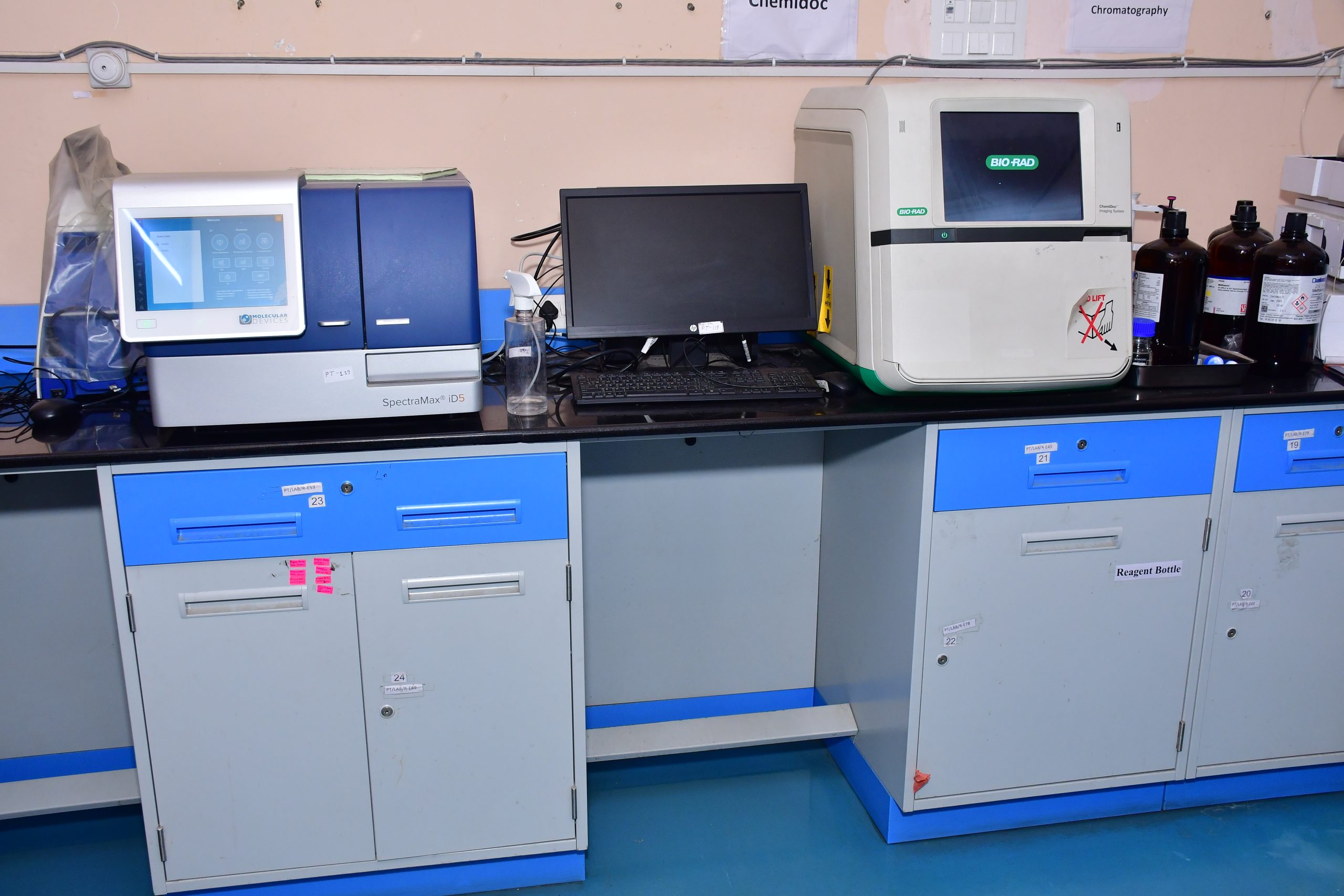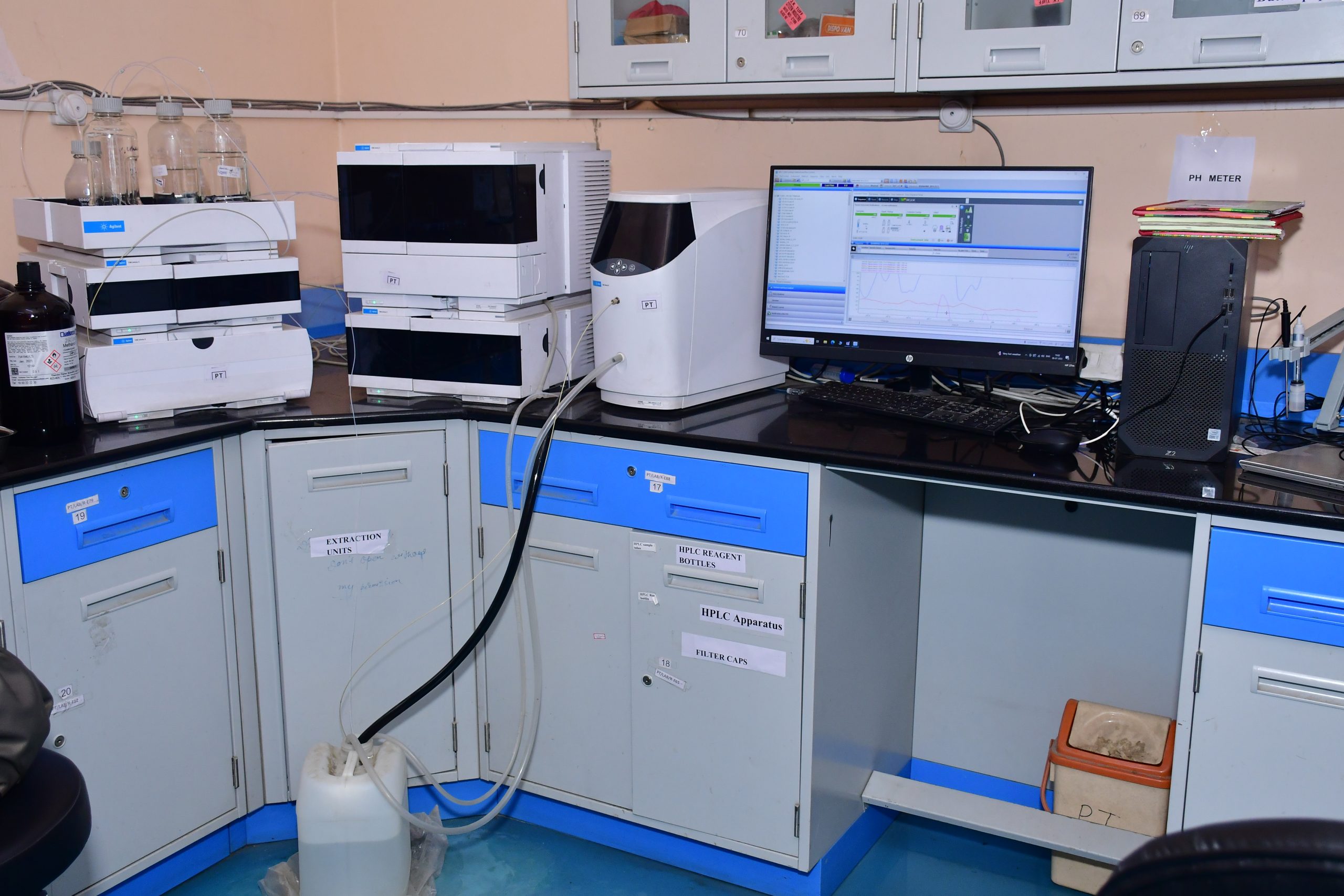Department of Regulatory Toxicology
Department of Regulatory Toxicology at NIPER, Hajipur was established in 2022. Since its inception, the department is specialized in training post graduate students for Industry need keeping a focus on safely of therapy at prime importance. It deals with training students for evaluating toxicity of NCE and drugs preclinically and clinically. The department is equipped with a state of art laboratory with various instrumentsto perform basic to advance research in toxicology with special focus on molecular mechanism of toxicity. The department is working in coordination with Department of Pharmacology and toxicology inside the premises and other research institutes namely Mahavir Cancer Institute and Research Centre, Patna, Rajendra Memorial Research Institute of Medical Sciences, Patna (previous mentor institute) and IGIMS,Patna for various projects and study-related activities.
Program: M.S. Pharm. (Regulatory Toxicology) The duration of the postgraduate course is of 2 years spreadover of 4 semesters, out of which the last two semesters are exclusively dedicated for the research project. The course curriculum is designed to cover the areas of the fundamental and regulatory aspect of safety, and efficacy of pharmaceutical products from herbal and synthetic sources.
Subjects in first semester: Pathophysiology, General and Experimental Pharmacology, Chemotherapy of Parasitic andMicrobial Infections, Separation Techniques, Biopharmaceutics and Pharmacokinetics, Biotechnology inPharmaceutical Sciences, Biostatistics and Fundamentals of Intellectual Property (IP) and TechnologyManagement.
Subjects in Second semester: Drug Metabolism, Pharmacological Screening and Assays, CNS andRespiratory Pharmacology, Autonomic, CVS, Blood, Renal and GI Pharmacology, Autacoid and EndocrinePharmacology, Clinical Pharmacology, Regulatory Toxicology, Chemotherapy, Immunopharmacology.
Project work in third and fourth semester: Though the research training starts from the first semester onwards, the realresearch experience is imparted to students by the experienced faculty of NIPER, Hajipur and nearby reputedscientists of other national institutes in the second year. Students are given the freedom to select the researcharea while the emphasis is given to work in the area of expertise of the faculty.
The broad area of research includes:
- Developing safety biomarkers in drug development, and pre-clinical risk assessment in regulatory toxicology.
- Reproductive, mutagenicity, genotoxicity and carcinogenicity studies.
- Toxicokinetics and toxicodynamics profile of nanoformulations / nanoparticles
- Developing organoids (3D culture) for toxicology and genetic toxicology
- Studying organ-specific toxicity using transcriptomics, proteomics and metabolomics.
- Developing regulatory framework for nanoformulations, AYUSH drugs, and environmental pollutants.
- Toxicity, mechanism and health effects of heavy metals, and Develop a QSTR model to predict neurotoxicity.
- Toxicological studies of drugs and nanoformulations from herbal and synthetic sourcesNeurotoxicologyCardiovascular safety
Currently Grant Funded at Dept. of Regulatory and Toxicology:
1.Principal Investigator, Dr. Vipan Parihar: Endocannabinoids for cognitive aging and neurodegeneration, funded by Dept of Science and Technology, SERB Start-up Research Grant. Total amount Rs 32 Lakhs. Year 2022-2024.. This project focused on the analysing age-related modifications of the CSF proteome, from subjects with AD and amnestic mild cognitive impairment.
2.Principal Investigator, Dr. Vipan Parihar: “Efficient process development strategies for prevalent “Rare disease” drugs”. Funded by Dept of Science and Technology, and Dept of Pharmaceutical Govt of India. Research project: Rare disease multicentric program grant. Total amount funded: Rs 70 Lakh.
Faculty
1. Dr. Vipan Kumar Parihar, Associate Professor and Head (i/c)
2. Dr. Suhani Sinha, Associate Professor
3. Dr. Nitesh Kumar, Assistant Professor







